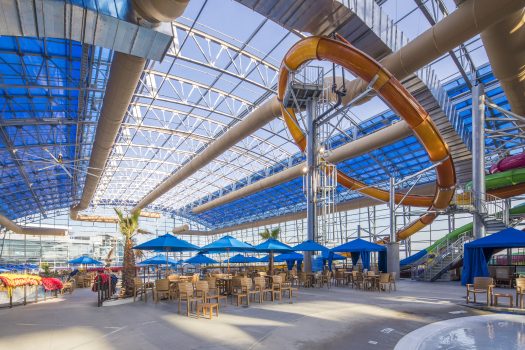In a recently published article in The Guardian, Eric Hansen, Director of Development Services for H&LA, weighed in with his expertise about waterparks as it relates to water conservation and the effect drought can have on waterparks and the way they are perceived in a community. The issue of water conservation can have an impact on waterpark feasibility in the long-term.
By: MATTHEW JENKIN
Published: APRIL 2015
Water parks require thousands of gallons of water a day to stay afloat, but experts say it’s important to put their water footprint into perspective
California and the American south-west are suffering the worst drought in a generation. But despite consumers and businesses being urged to drastically cut their water usage, water parks requiring large volumes of H20 to operate rides and slides continue to open their gates to thrill-seeking hydrophiles. How is this possible?
Some solutions are neither environmentally nor economically sustainable. Last summer’s drought restrictions in Wichita Falls, Texas, for example, forced the Castaway Cove attraction to truck in 9,000 gallons of water a day to stay afloat.
“Educating the public about our conservation efforts is very important,” claims Mangold. “The work we do has always been behind the scenes, but now we are changing our approach, making visitors aware of the different innovations used to save water throughout the park to inspire our guests to make a change themselves after they have left.”
Thirsty service sector
Eric Hansen, director of development services for Hotel and Leisure Advisors – a US-based feasibility and market analysis company specialising in the water park sector – believes water parks need to be as responsive as possible to drought emergencies. If the authorities declare an emergency, water parks must clearly show what direct action they are going to take to tackle the event.
They should also be realistic about the size of a park’s water footprint – customers may be surprised to discover it is far smaller than they originally imagined. He claims restaurants and hotels waste far more water through catering and laundry services. Because of the huge costs involved, conservation is an essential design principle when developing any water park. To read the entire article, click here.


